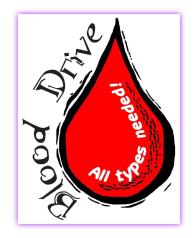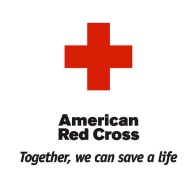 By Roxi Sepulveda
By Roxi Sepulveda
Being a superhero does not just mean donning a cape and battling crime, blood donors are heroes because they truly save lives, especially those with rare blood types.
On Tuesday, Feb. 2 the Association of Students in Communication along with the American Red Cross sponsored a blood drive in the June Whitley Student Lounge at College of Southern Nevada’s Cheyenne campus.
ASC’s Faculty Adviser Charlene Gibson helped sponsor the event. After the day’s donations, she was informed by the Red Cross that 38 units of blood were donated from more than 50 people, which can help save approximately 114 lives.
“I’ve been donating blood since I was 17 years old,” said Rosalia Salazar, a student at CSN. “I think it’s very important to know about the importance of blood donations and how many lives it can actually help. I am a Jehovah’s Witness so it’s against my religion and I’m totally fine with it because I think that as long as I’m helping someone else live a healthy life, that’s all that matters.”
There are several blood types. A-positive and O-positive are the most common. The universal red-cell donor has O-negative and the universal plasma donor has AB, according to Red Cross’ website.
There are rarer blood types notably AB negative, AB positive and B negative. In the overall population less than 3 percent carry these types of blood so donors who can provide them are unique, according to Red Cross.
 American Rare Donor Program, a collaboration with the Red Cross and AABB Immunohematology Reference Laboratories, tracks rare-donor information to better meet needs of patients with rare blood types. Currently there are 45,000 active rare donors in the database, according to Red Cross’ website.
American Rare Donor Program, a collaboration with the Red Cross and AABB Immunohematology Reference Laboratories, tracks rare-donor information to better meet needs of patients with rare blood types. Currently there are 45,000 active rare donors in the database, according to Red Cross’ website.
“Typically, a rare donor is a person whose red blood cells have been tested and found to lack a certain high-incidence antigen or a combination of several more common antigens, which together make the blood unique,” as stated on LifeShare Blood Centers’ website, an organization part of ARDP.
Red Cross Recruiter Elizabeth Kahane shared how they collect blood—at events likes this—and access a national database to see where to ship it to. Kahane said the typical shelf-life of blood is approximately 42 days and one full blood donation can save up to three lives.
In the United States alone there are 6.8 million blood donors registered according to Red Cross.
On Tuesday, May 3, another blood drive is scheduled on Cheyenne campus. For more information on becoming a blood donor please visit www.redcrossblood.org.



